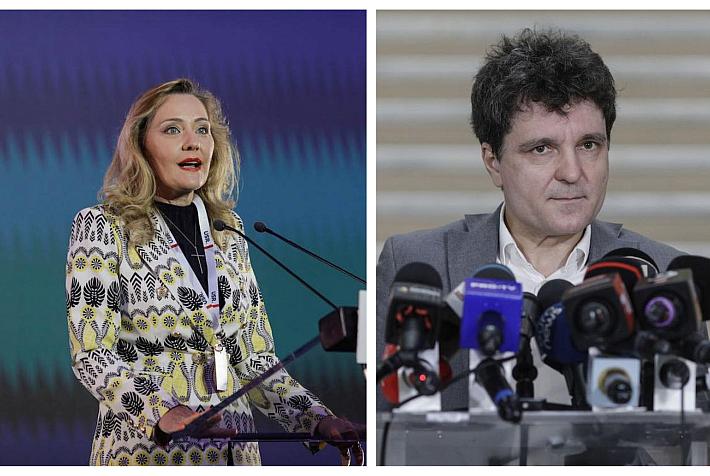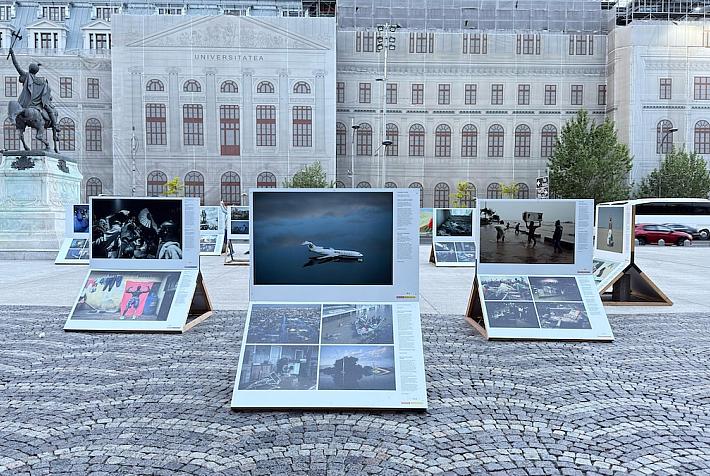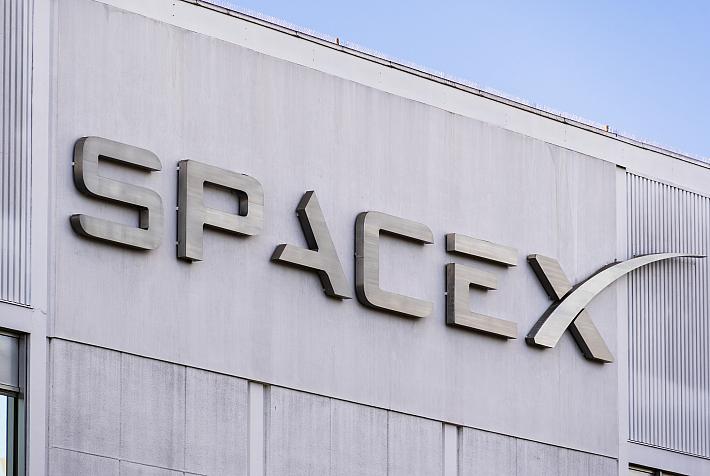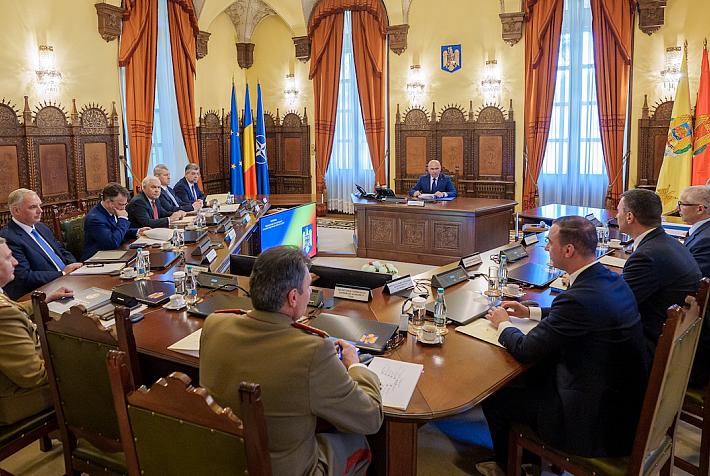Comment: Romania - cutting a new future and leaving the past behind
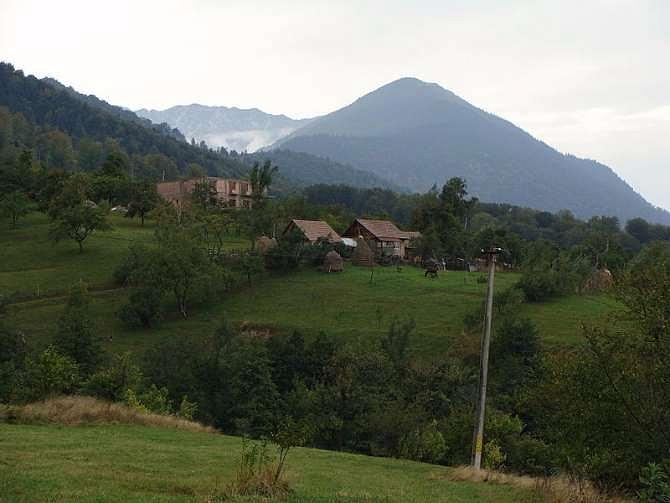
It's always like coming home, as I sit down on the terrace that overlooks the world. I pick a grape out of the fruit bowl; my enormous breath of relaxation tells me my holiday has finally begun. The sound of crickets in the field washes away the London drone like a cleansing solution. Peace at last.
In front of me, as far as the eye can see, the view rolls out across the plain, framed both sides by undulating hills dotted with orchards of cherry and plum, and haystacks combed around a central pole. Behind the hills, on both sides, rise two of Romania's biggest mountain ranges - Fagaraş and Bucegi - standing tall, holding up the sky for all the world to see. In the valley, a cockerel can be heard in the distance. And a cow bell. And the gentle chopping of an axe, carried on the soft summer's breeze. Traditional village life carries on, seemingly unchanged for centuries, epitomizing, in so many ways, all things yesteryear; swallows flying freely, grass growing wildly; carts drawn by horse and wool still carded by hand. It is quiet. It is tranquil. And from my little terrace, Kipling was so right; East is East, and West is West, and never the twain shall meet. Nestled in a far, gentle corner of Eastern Europe, Predeluţ couldn't be much further from the noise and agitation of the West, even if it tried.
"Happy?" my wife asks.
My smile reveals all, as I lie back in my chair, folding my arms behind my head. Yes, happy. Very.
Until a petrol strimmer revs up in the field just behind my head. Indeed, I could hardly believe it - a man clearing the grass with a petrol strimmer. This is new. This has never been before. A petrol strimmer. And in that moment, I realize just how much things are really changing. It's getting hard to deny it anymore. And for me, the glass shatters and the earth splits apart. This is the year that marks the beginning of the end for the scythe - as the tractor did the previous year for the horse, and the chain saw did for the axe the year before that. In fact, year on year, things are changing fast. Faster than I would like to dare believe true. And for every step forward, a bit of traditional life has to disappear. One step forward, half a step gone. And with the onward march of mechanized noise, tranquility has no choice but to retreat and fade. Modernity and industrialization have now snuffed out this part of the world, too, just as it has done in so many other parts of Europe. Life here is beginning to move on. Some say, catch up.
"But surely they're allowed to progress," my wife points out.
And of course, she is right. The villagers of Predeluţ are entitled to stop breaking their backs in the baking sun; and to stop toiling the land until their hands are blistered and weathered; and to no more trudge up the steep mountain sides with bundles of hay on the backs of horses which are too old and too tired to work anymore. Yes, indeed, it is their right to do whatever they need to do to make their lives easier and increase their quality of life. And if that means using machines to get the job done faster, so be it. After all, the West revels in these things. Even flaunts them. Machines do our work. And we enjoy the fruits of their labor. And so why are not the people of Predeluţ entitled to the same?
"But it doesn't make it any less sad," I reply, as my wife pours another coffee. It's not the petrol strimmer per se that's the issue, but rather what it represents. The scythe is one of the final vestiges of how Europe was, when people worked together, by hand - the haymaker, the smith, the cartwright - using their skills and specialized crafts which have been passed down from generation to generation for time immemorial. And one by one these skills are disappearing. The usurpation of the scythe by the petrol strimmer is just another thread of our collective European cultural heritage being cut, removing us from our past. And soon these skills will be gone forever. Lost to time. Lost to machines.
"But perhaps we don't need these skills anymore?" asks my wife.
And, of course, that's where it really begins to hurt. Because, in truth, we don't. And increasingly nor do the people of Predeluţ. Once they are fully up and running on Amazon, Ikea and Starbucks, they won't need to remember these things. And that's possibly why it becomes most sad. Time really has marched on. Irrevocably. And as their market stalls become filled with plastic toys from China, and their hill sides become filled with ever bigger neon lights and billboards, we must accept that those last bastions of yesteryear are inching away. One by one. It's happening. And the question we'll be left asking is whether or not we should have let it. Should we let Europe forget those skills upon which, over millennia, it was built? Or should we have done more to preserve them? Is it not our obligation, our duty, to future generations, to maintain some aspects of traditional Europe? That's what we'll be asking when it's all gone.
"But it's still beautiful," my wife says.
"Absolutely," I reply, taking a photo of the view on my iPhone and posting it on Facebook. "It will always be beautiful. Just in a slightly different way."
by Jethro Shirley-Smith, guest writer
(Photo source: Wikipedia)






